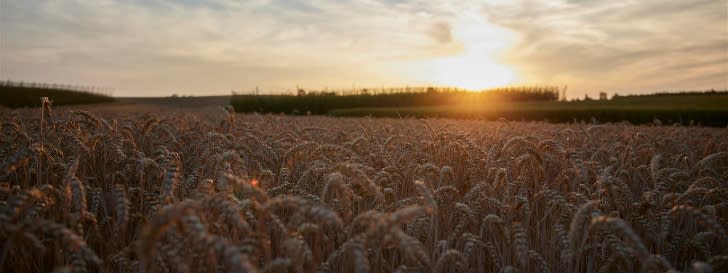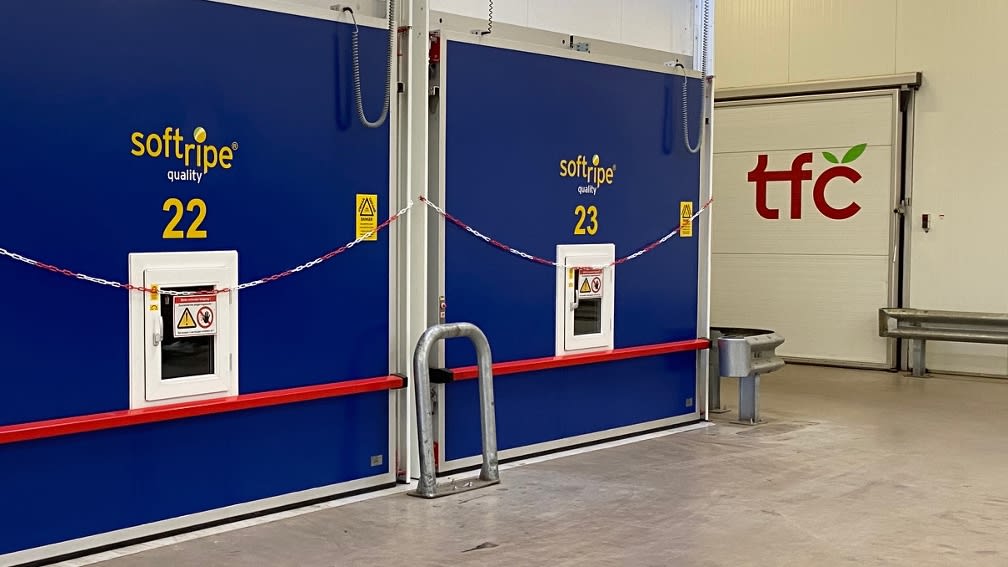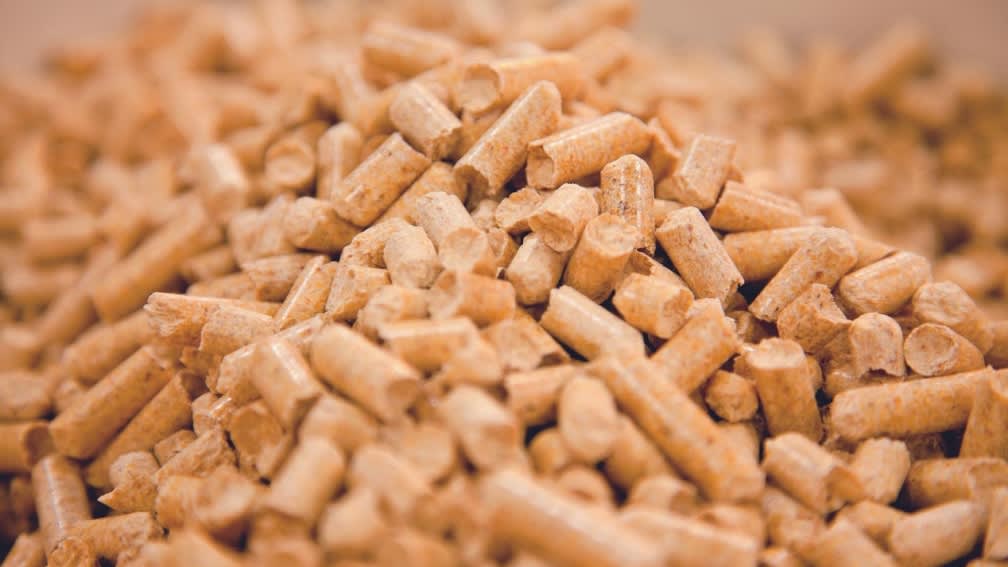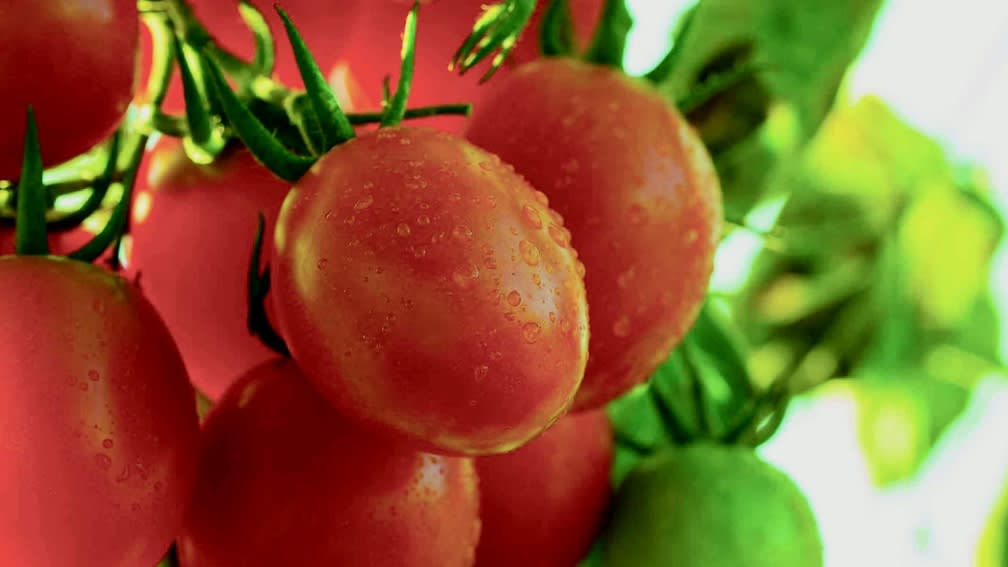
Sustainability Initiatives
BayWa Sustainability Initiatives: Agriculture & Nutrition
BayWa supports its customers with innovative products and services to meet global challenges such as climate change and a growing world population. To this end, it is driving forward the development of sustainable and digital technologies for agriculture, among other things.
Climate-Resilient Agriculture
In addition to reducing greenhouse gas emissions, BayWa is also increasingly concerned with the physical risks of climate change and the impact on its own business activities. A long-term shift in climatic conditions and extreme weather events could fundamentally change global agricultural production and the flow of goods. Agricultural trade and logistics are therefore directly affected. In order to better understand the effects in the agricultural sector and increase resilience in the agricultural value chain, BayWa has been using scenario analyses and cross-divisional workshops since 2019 to identify and evaluate risks and opportunities and develop strategic guidelines.
Variable Rain for Efficient Water Use
Increasing heatwaves and drought pose major challenges for farmers, as they lead to global yield losses and require more artificial irrigation. With the help of "VariableRain", an application from BayWa, farmers can keep an eye on the individual water requirements of their plants and control the efficient use of water in a targeted manner. This is made possible by the use of satellite data to create irrigation maps. The smart service saves water, energy and time and gives the plant exactly the amount of water it needs, preventing this resource from being wasted and managing the plants' water balance.
BayWa Eco
Organic production methods, regionality and fair production conditions are an important part of future-oriented agriculture. BayWa Agrar meets the increasing demand for organically produced products with its comprehensive "BayWa Öko" range for organic farming, from the right seeds and organic fertilizers to the right technology. In addition to the stationary trade, organic farmers also have access to the BayWa portal with around 500 selected products from the areas of animal husbandry, soil fertility and seeds. Organic products are recorded at five locations and organic farmers are supported in marketing their products. In addition, BayWa's five organic key account managers advise farmers on crop cultivation on both organic and conventional farms who are about to embark on new paths.
Initiative Cefetra Ecosystems
Cefetra Ecosystem Services has launched an innovative agricultural program designed to reward farmers for significant improvements in carbon emissions, soil health, water management and biodiversity. The program is initially available in the UK and Ireland.
Later in 2025, Cefetra expects to announce its expansion to European and non-European regions. The program is deliberately flexible and focuses on measurable outcomes rather than a one-size-fits-all approach. It empowers farmers individually to choose the methods that work for them, creating sustainable practices that deliver real, positive results for soil, water and biodiversity.
Climate-resilient Fruit Production
BayWa Global Produce subsidiary T&G Global Limited joined the international and cross-industry breeding program "Hot Climate Programme" as a commercial partner in 2019. The aim of the program is to develop apple and pear varieties that are adapted to growing areas with high temperatures. Due to climate change, it is becoming increasingly important for fruit growers to cultivate plants that continue to be reliable in terms of yield and quality despite dry and hot climates. Plant varieties require less fertilizer and water, which makes them more resistant to changes in temperature and precipitation conditions caused by climate change. In 2020, T&G started marketing the first climate change-resistant apple called "HOT84A1".
State-of-the-art Technology for Longer Durability
Fruit tastes best and contains the most vitamins when it is harvested when ripe. However, some exotic fruits are only exported when ripe due to the long transportation routes by ship and are only ripened at their destination. BayWa Global Produce has invested in innovative Softripe® technology at various locations in the Netherlands and in the UK, which works with artificial intelligence - and allows avocados and mangoes to ripen with pinpoint accuracy. It monitors the atmosphere and adapts it individually to the metabolic processes of the fruit. This ensures better quality and a longer shelf life without the use of additives. As a result, there is less food loss. In addition, the ripening time is shorter and less energy is required.
Wood-based Animal Feed
The agromed Austria GmbH, a subsidiary of RWA, is committed to healthy, natural and sustainable pet food, the natural active ingredient lignocellulose. Animals need this component of the raw material wood for a healthy gut and a strong immune system, among other things. The natural fibers for the products are obtained from untreated fresh wood, which comes from local and sustainably managed forest stands in Europe - mainly in Germany - and is certified with the GMP+ and PEFC standards.
Online platform for Used Agricultural Machinery
Whether tractors, forage harvesters or sowing equipment, customers can find a wide range of used agricultural machinery from a wide variety of manufacturers on the BayWa Börse platform. The machines are diagnosed, repaired and reconditioned by BayWa - and can therefore be sold on. With the used machinery business, BayWa extends the product life cycle of the machines and is thus committed to greater sustainability in agricultural technology. The machines mainly come from the sales region - for example, if a customer buys a new machine, BayWa will trade in the old machine on request. The market is not limited to the DACH region - BayWa also supplies used agricultural machinery worldwide.
Climate friendly tomato production
In New Zealand, a bioenergy plant is being built that converts food waste into energy and supplies biofertilizer and heat.
Agri PV
In several Agri-PV pilot projects in the Netherlands, BayWa r.e. and its subsidiary GroenLeven are investigating how the use of solar modules can be successfully combined with the cultivation of different berry varieties.
The modules provide both good climatic conditions for the plants and protection from extreme weather events. Both are becoming increasingly important for specialty crop cultivation due to climate change. The projects have shown that the quality of the fruit can be improved and production costs can be reduced.
In addition, this type of cultivation conserves important resources by increasing land use efficiency and reducing plastic waste and water consumption.









